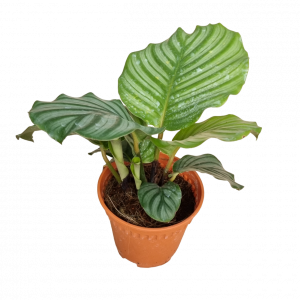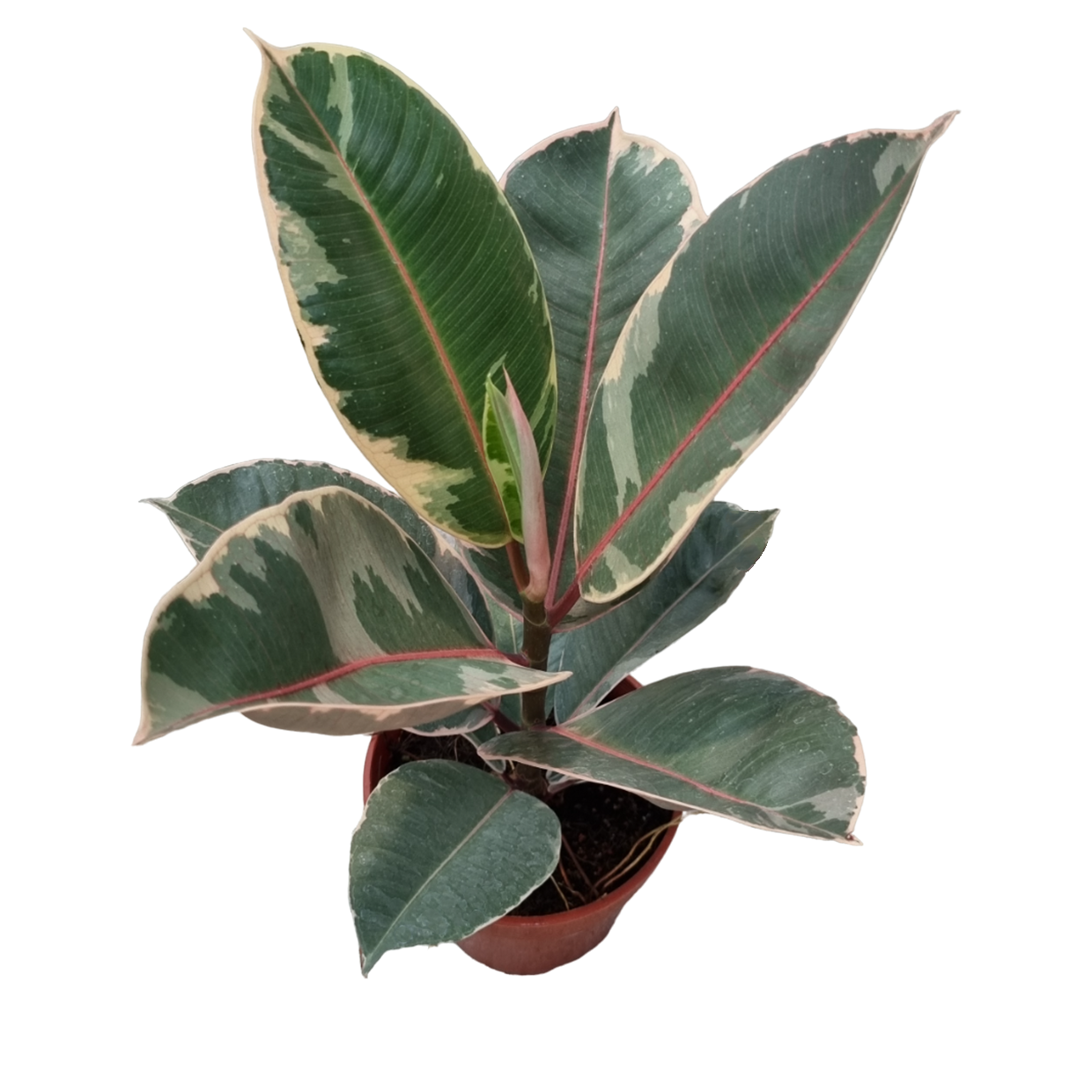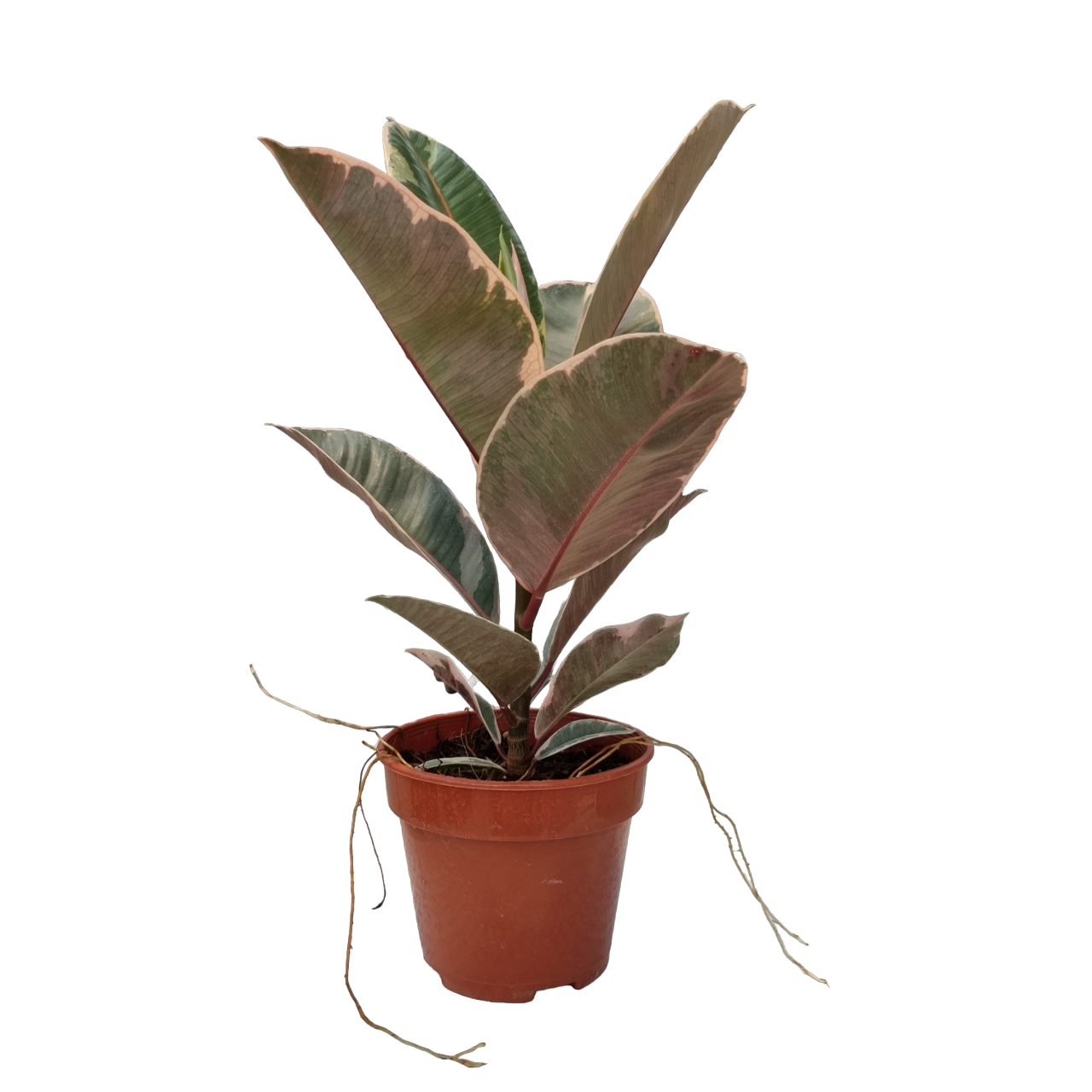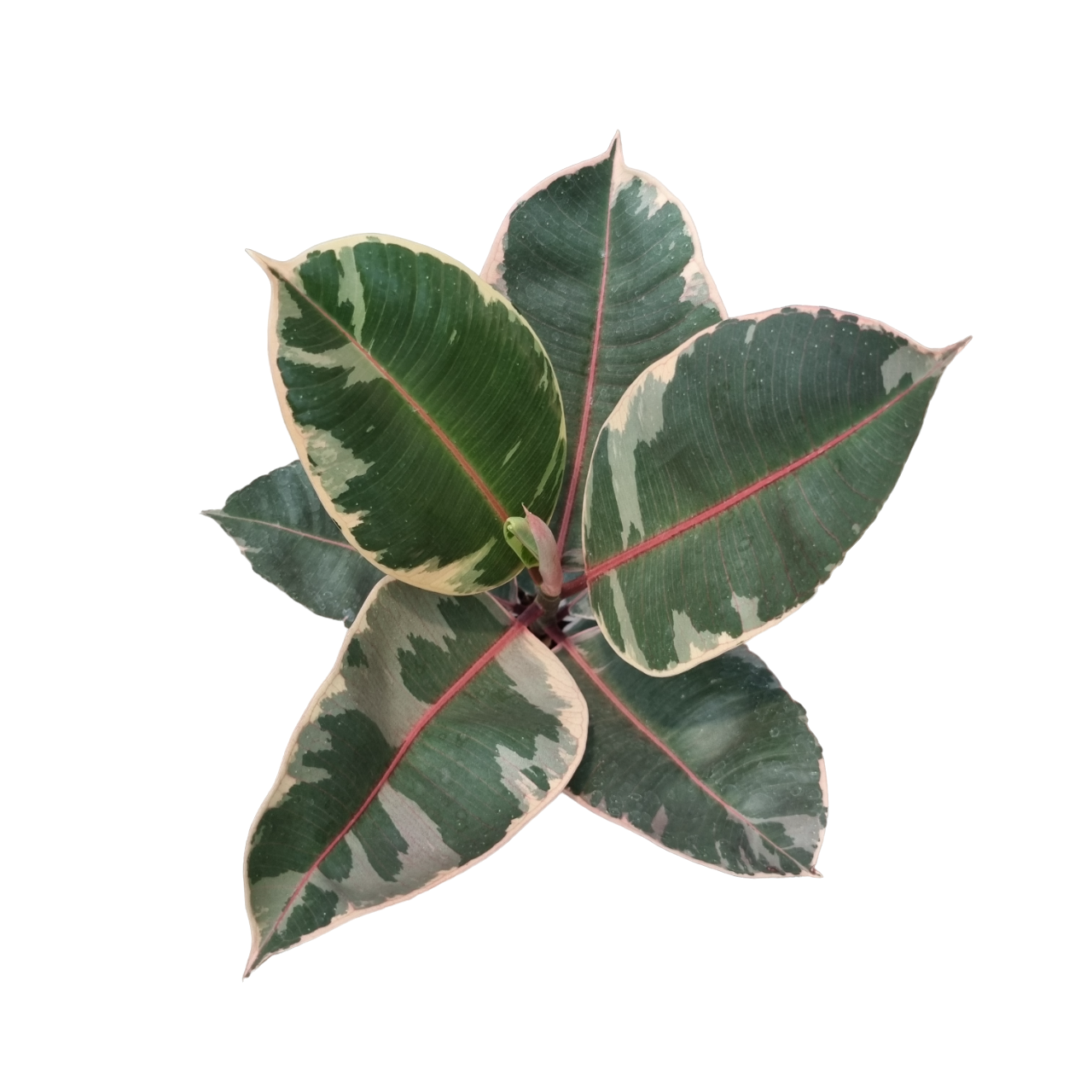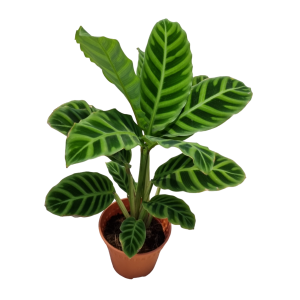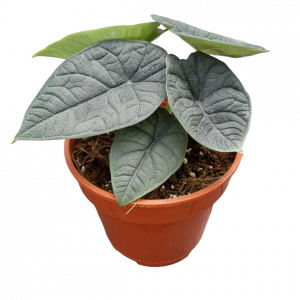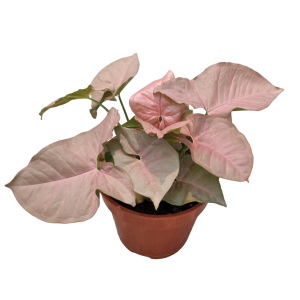Ficus elastica ‘Tineke’, commonly known as the Tineke Rubber Tree, is an ornamental evergreen shrub native to Southeast Asia. This striking variety of the rubber plant is known for its unique variegated foliage, which features glossy, oval-shaped leaves in shades of green, white, and cream. The Tineke Rubber Tree can grow into a small tree or large shrub, making it a perfect addition to indoor spaces or as a decorative plant in larger containers. Its low maintenance and beautiful foliage make it a popular choice for homes and offices.
Plant Care Guide
Light: Ficus elastica ‘Tineke’ thrives in bright, indirect light. While it can tolerate some direct sunlight, too much can cause the leaves to scorch, particularly on the variegated sections. Place it in a location that receives plenty of natural light but shielded from harsh sun to maintain vibrant leaf colours.
Watering: This plant prefers consistently moist soil, but it’s important not to overwater. Water when the top 2-3 cm of soil feels dry to the touch. Ensure the pot has good drainage to prevent water from sitting at the bottom, which can lead to root rot. In the rainy season or humid environments, reduce watering frequency slightly to avoid excess moisture.
Soil: Ficus elastica ‘Tineke’ prefers well-draining, loamy soil with good organic content. A mix of potting soil combined with perlite or sand will work well to maintain moisture without retaining too much water. The roots need to be kept moist, but not soggy, for healthy growth.
Fertilising: Fertilise the Tineke Rubber Tree with a balanced fertiliser. This will encourage lush, vibrant growth and support the variegated leaves. Avoid over-fertilising, as this can lead to excessive leaf growth and a reduction in the plant’s variegation.
Common Pests: Common pests for Ficus elastica ‘Tineke’ include spider mites, aphids, and mealybugs. Regularly check the undersides of the leaves and along the stem for any signs of pest infestations. If detected, treat the plant with neem oil or insecticidal soap to control the problem. Ensure the plant is kept clean by wiping its leaves with a damp cloth to remove dust and prevent pest accumulation.
General Care: Ficus elastica ‘Tineke’ prefers a warm, humid environment, making it well-suited for tropical conditions. Mist the plant occasionally to maintain humidity or use a humidifier in drier spaces. Regularly clean the leaves to keep them glossy and to prevent dust build-up. Pruning can be done to maintain its shape and remove any damaged or dead leaves, which will help the plant maintain its attractive appearance.
Lighting: Bright Filtered Light
Watering: Water Thoroughly
Watering Frequency: When top layer of soil is dry
Scale insects: Scale insects are small, immobile pests that infest plants by feeding on their sap. They can cause yellowing, stunted growth, and plant death. There are two main types of scale insects: armored scales and soft scales. Control methods include cultural practices such as pruning and improving plant health, as well as insecticides that are specifically labeled for use against scale insects..
RYNAN Follamate 230 23-8-8-TE: Every 3 Months.

